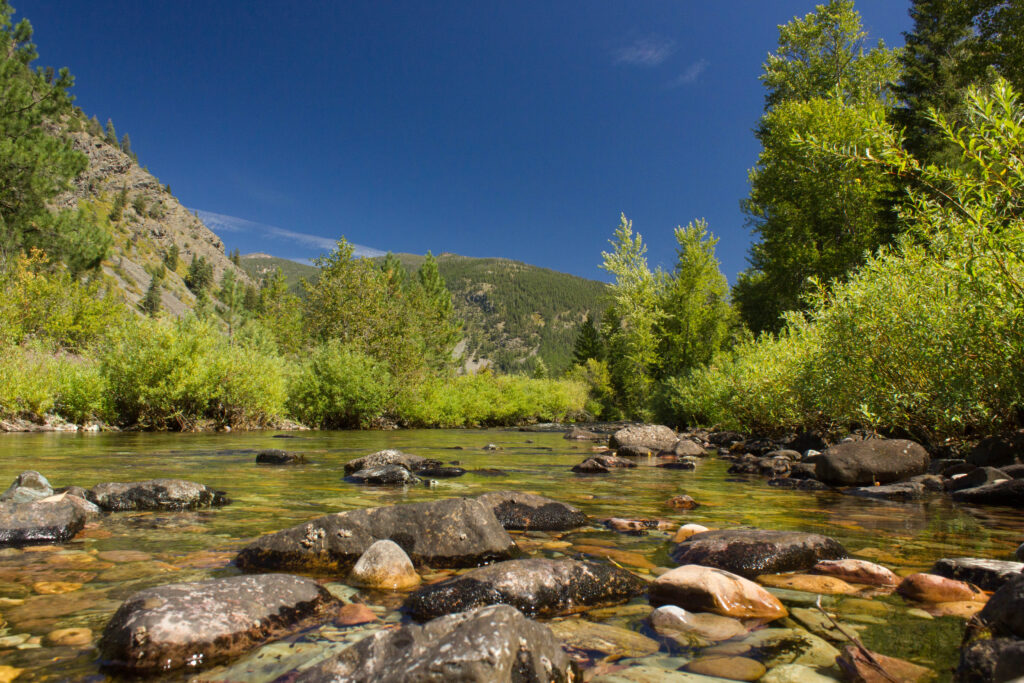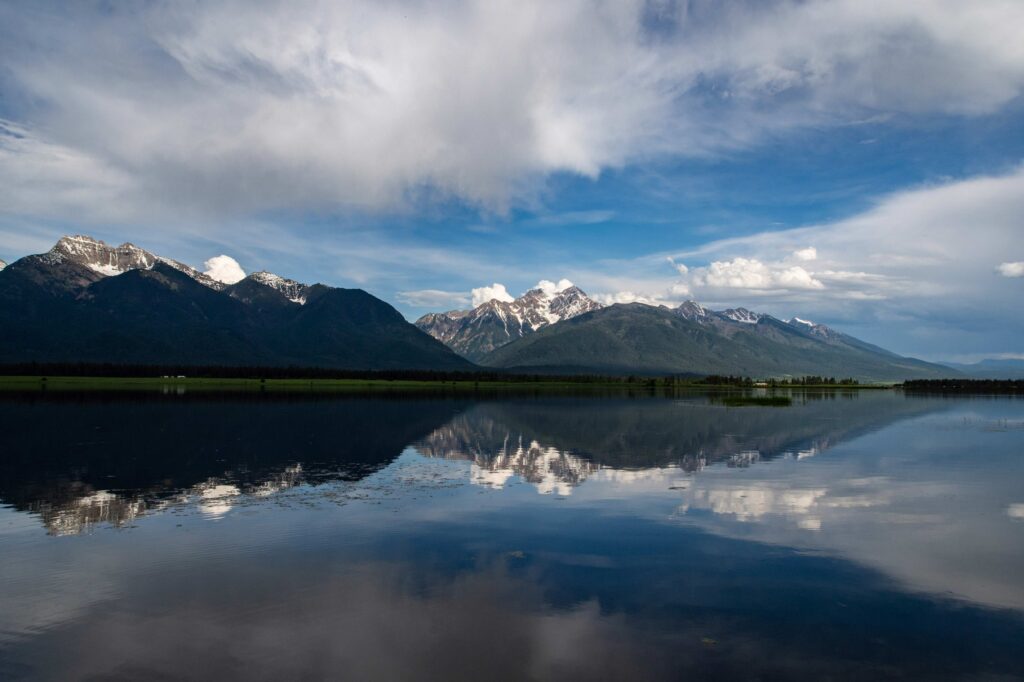Montana is currently in the midst of an unprecedented heatwave and drought and our wild trout populations are feeling the heat. Many streams around the state are already under “Hoot Owl” fishing restrictions or full closures, earlier than we’ve ever seen these emergency regulations in the past. In this difficult time for our fisheries, it’s more important than ever that all anglers do what we can to limit our impact on this shared resource. We’ve complied a list of recommendations to help you decide when, where, and how to fish until things cool down.

Why is water temperature important?
Trout are cold blooded animals with a metabolism that depends directly on the temperature of the external environment. They also rely on highly oxygenated water and the warmer water gets, the less dissolved oxygen it can hold. Most trout species’ optimal temperature range is 55F-65F for maximum growth and health. For native bull trout that range is even colder. When water temperatures rise into the high 60s, trout begin to experience stress and hooking mortality rates increase. If temperatures remain above 70F for an extended period of time, trout begin to die, especially if they are caught and released.
What can I do to help our fisheries?
There are a number of ways you can fish responsibly this summer and protect our trout fisheries. Here’s just a few:
- Check the MT FWP website every time you go fishing for “Hoot Owl” restrictions and river closures. On rivers with “Hoot Owl” closures, fishing is only permitted between midnight and 2pm when water temperatures are coolest. New emergency regulations are coming out almost daily. Stay informed!
- Use a stream thermometer when you fish, available at your local fly shop. Water temperatures change throughout the day with the coldest water occurring in the early morning. Take the temperature frequently throughout the day and when water temperatures rise above 67F, stop fishing. Here’s a short video we produced showing you how to properly take a water temp:
- Always keep fish wet and release them quickly. Save your “grip and grin” photo sessions for the fall, when conditions improve.
- Use heavier tippet and land fish quickly. Prolonged fight times in warm water place a high amount of stress on the fish and increase hooking mortality. This isn’t the time to see if you can break your personal best on your trusty 3wt.
- Consider exploring high mountain streams and mountain lakes, where water temperatures stay cooler and give the big river fish a break.
- Take the time to do some warm-water fishing. Carp, bass, and northern pike are fun to target on a fly rod!
- Consider taking a break from fishing during this hot weather and find other ways to enjoy the Montana outdoors. Floating, swimming, hiking, biking, and more are just out your door. Take some time this summer to learn a new skill or pastime.
These are just a few suggestions to help you protect our trout this summer. If we all do our part and fish responsibly, we’ll have more fish to chase once conditions improve. MTU works hard year-round to do what we can to mitigate the effects of our warming climate, from stream restoration projects on tributary streams to finding new ways to increase flows and put water back into the river. If you’d like to make a donation to support this work, click the link below. Thanks for all you do to further our mission!




